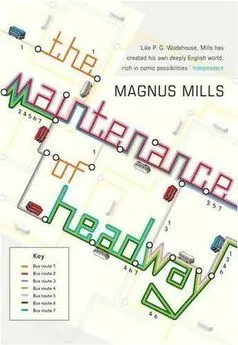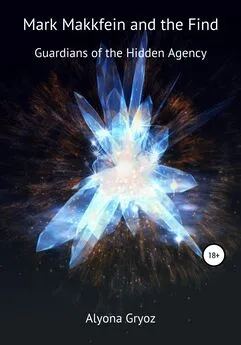Mark Mills - The Information Officer
- Название:The Information Officer
- Автор:
- Жанр:
- Издательство:неизвестно
- Год:неизвестен
- ISBN:нет данных
- Рейтинг:
- Избранное:Добавить в избранное
-
Отзывы:
-
Ваша оценка:
Mark Mills - The Information Officer краткое содержание
The Information Officer - читать онлайн бесплатно ознакомительный отрывок
Интервал:
Закладка:
“These two beauties would suggest otherwise,” Elliott said, grinning.
He sat himself down across from Max at the rough lumber table in the courtyard and began to prepare the fish, working the knife with an expert hand.
“You look like you know what you’re doing.”
“Don’t be fooled. Pawlu showed me how.” He glanced up at Max. “It’s not in my blood, if that’s what you’re asking. I’m from mountain stock.”
It was near enough the first information Elliott had ever volunteered about himself, and it didn’t stop there.
He had grown up in the Berkshire Hills in western Massachusetts. Writers such as Nathaniel Hawthorne and Herman Melville had lived there and waxed lyrical about its stubborn and stony beauty, its soaring peaks and plunging valleys, but such romantic considerations had probably not figured very large in the minds of Elliott’s forebears on his mother’s side when they had chopped their farm out of the wilderness.
Winters there were long and harsh. Elliott could remember milk freezing in a pail left by an open door, and his mother thawing out the buttonholes on his jacket with a hot flatiron. He could also recall his grandfather getting caught in a blizzard and being carried home in the back of a cart, closer to death than life, not long for the world.
Elliott had been twelve at the time, and when it had finally been his turn to say his farewells, he had gone upstairs to the bed where his grandfather lay. Drawing him close by the hand, the old man had whispered weakly into his ear: “It is appointed unto man once to die.”
“I can tell you,” Elliott went on, “I was pretty glum when I woke the next morning. And you know what? The first thing I saw when I went down to breakfast was that hard-shelled old bastard moaning to my grandma that she’d overcooked the bacon again.”
His father’s side of the family was an altogether different story, one of New Yorkers drawn to the forest-clad slopes of the Berkshires by the fortunes to be made from paper. The Berkshire mills manufactured the paper from which United States currency was made, and this near enough amounted to a license to print their own money.
It was paper that carried the family to England when Elliott was a teenager, his father taking up a post with Wiggins Teape in Basing-stoke.
“Do you know Basingstoke?”
“Only to pass through.”
“That’s the best way to know it. It’s like Hawthorne said of Liverpool: ‘a most convenient and admirable point to get away from.’”
Max laughed. Elliott placed the fish on the grille over the glowing embers and continued with his account.
He hadn’t enjoyed his time in England, although his few years at Charterhouse School had been pleasant enough. His Calvinist boarding school back in the Berkshires had prepared him well for the vagaries of life in a prewar English public school: several hundred young men paying fearful homage to a handful of slightly older young men while a bunch of rather bewildered old men looked on.
Being a foreigner with a funny accent, he’d found himself the subject of ridicule, which had taught him a valuable lesson: to keep his mouth shut. Also, to bide his time; opportunities for revenge would present themselves sooner or later.
“I was the ‘lanky Yankee,’ a figure of fun.” He smiled as a thought came into his head. “Which is pretty much how people look at me here.”
“And are you plotting your revenge on us?”
Elliott’s voice took on a sinister edge. “Don’t worry. You get off light.”
Max smiled. “Why are you here, Elliott?”
“Because we’re allies.”
“I mean, why are you really here?”
“Because we’re allies.”
“You promised me some answers.”
“It’s an honest answer. We’re allies, and allies don’t always see eye to eye.”
“That’s a half answer.”
“We’ve been watching things over here for a good long while. It gives us a different perspective, and of course we’re going to take a view on what we see.”
“What’s the view?”
“The only one there is: that the two-bit upstart with the smudge on his upper lip has taken the first few rounds without breaking a sweat.”
“And … what? Now that you’re in the ring, he’s punching above his weight?”
Elliott gave a little shrug. “You wrote us out of your history of the last war, and you’ll do the same with this one. But the truth is, without us you’re screwed; with us, you stand a chance. A bold statement, I know.”
“And some might say an arrogant one.”
“Now, that’s one area where you beat us hands down. You’re the only people in the world who could turn Dunkirk into a victory—a mass retreat, for Christ’s sake!”
“I suppose.”
“What is it about you Brits and your constant refusal to know when you’re beaten? Don’t get me wrong, I admire you for it. I mean, last month, when the Penelope was in port for repairs, you remember?”
How could anyone forget? The Germans had hurled everything they’d had at the damaged cruiser. Day after day the Stukas had come to finish her off, reducing the dockside to a mesh of craters. The ship’s quarterdeck became known as the “rock garden,” and when she finally slipped away under darkness to Alexandria, there were more than two thousand wooden pegs in her, stopping up the shrapnel holes and earning her the nickname HMS Porcupine .
“I got caught down there one morning during a raid. It was bedlam, like nothing I’d ever seen, and right in the middle of it the ship’s company started singing. Singing, for Christ’s sake, to keep the spirits of the gunners up! I don’t get you guys, I really don’t.”
“So why did they pick you for the job?”
“I asked for the posting.”
“Regretting it yet?” Max inquired with a faint smile.
“Things are a bit hotter than I’d hoped, but hey, look around you….” He spread his hands. “Nine miles below hell, it ain’t.”
Elliott flipped the fish on the grille.
“Why Malta?” Max asked.
“Because we’re making history here.”
“Not that they don’t have enough of it already.”
“This will be right up there with the best of it. The war can turn on what happens here.”
“You’ve been speaking to Hugh.”
“Hugh’s a romantic, but he also happens to be right. Malta saved Europe once before, and it might just do it again. You won’t know this, but Mandalay fell to the Japs a couple of days back. Burma’s as good as gone, and they’re coming at India through Ceylon. If Egypt falls to Rommel, there’s nothing to stop the enemy linking up. They’ll cut the world in half and lay their hands on all that oil in the Middle East. If that happens, well, I know which horse my money’s on. Egypt has to hold out, and that’s where we fit in—this dot of an island in the middle of nowhere, so easy to ignore.”
“You call this being ignored? Every day for the past God-knows-how-many months they’ve dropped the same tonnage of bombs on us as they did on Coventry.”
“Field Marshal Kesselring’s no fool. Far from it,” conceded Elliott. “He knows the importance of Malta. But does he have Hitler’s ear? Because in the end, that’s what counts.”
“None of it’s going to matter when they invade.”
“They’re not going to invade.”
“I’m so glad you told me,” Max replied, with casual sarcasm.
“I mean it. The invasion’s off.”
“Off?”
“Put back. But that’s enough. Once the new Spitfires get here, it’s dead and done for. This was their one chance, and it looks like Hitler’s made the same mistake again. He should have invaded you guys two years ago. July 1940. That was his moment, and he missed it. This time, his big mistake was listening to Rommel. Rommel thinks he can get to Cairo, Malta or no Malta. But Rommel’s not an administrator; he’s a tactician—and a good one, if only because he’s unorthodox and therefore hard to read. Logistics like supply lines are beneath his dignity; it’s quartermaster stuff. He takes for granted he’ll get whatever he needs, and right now he is getting it. But if we gain air superiority over this island, then the Wellingtons and Blenheims will start flying again from Luqa, and he’ll know what it’s like to feel the pinch. Maybe he’ll take Tobruk—odds are he will, in my book—but Cairo’s a step too far.”
“Anything else I should know while you’re at it?”
Max intended the question as a joke.
“Depends if you can keep a secret or not,” replied Elliott, lighting a cigarette. “The governor’s about to be relieved.”
“Dobbie?”
“That’s impressive—the information officer knows the name of his commander in chief.”
Max was genuinely shocked. Dobbie was—well, he wasn’t just part of the furniture, he was Malta itself.
“Why?”
“He’s lost the confidence of his service chiefs, and they’ve started sneaking to teacher. Personally, I blame the command structure you’ve put in place. It’s a goddamn shambles. You’ve got a governor who’s answerable to the colonial secretary and to the War Office, and a general officer commanding who can’t coordinate the defense of the island because your naval and air force commanders report directly to their C-in-Cs in Cairo.”
“When you put it like that …”
“It is like that, and Dobbie’s taking the fall for it. I’d play the ‘poor health’ ticket if I were you, if only because there’s some truth in it. Oh, and better get drafting your piece. It’s going to happen soon, any day now.”
“In the middle of all this?”
“No point in hanging about once the decision’s been made. Thanks for everything, amigo, and adios.”
“Who’s replacing him?”
Elliott smiled. “You don’t expect me to hand you everything on a plate, do you?”
“No, although a piece of fish would be nice, before it’s cooked to buggery.”
They ate the fish with a simple salad of tomatoes so sweet that it suddenly made sense why they were classified as a fruit rather than a vegetable.
“I’ve been doing all the talking,” said Elliott. “Time for a bit of quid pro quo.”
“You really think I have anything up my sleeve to match what I’ve just heard?”
“I was talking about you. Tell me something about Max Chadwick that I don’t already know.”
“There’s a whole load of stuff you don’t know.”
“Don’t be so sure; I’ve read your file.”
“There’s a file on me?”
“You’re the information officer in a key theater of war. What do you think? I even know the name of your housemaster at Wellington.”
“Old Arsebreath?”
Elliott laughed. “That’s a level of detail it doesn’t go into.”
It came pretty close, though. Apparently Max had been described as “coming from a good family.”
“Well, that’s rubbish, for a start,” he protested. “My great-grandfather made a lot of money sending coal miners to their deaths. His son was a drunk, a bully, and a bigamist who never did an honest day’s work in his life.”
“A bigamist?”
“Well, maybe not technically, but he led a double life with another woman and other children.”
“And his son?”
“My father? He’s proof that the apple doesn’t always fall close to the tree.”
“Good on him,” said Elliott. “And that’s from a man who also had a bully for a father.”
Elliott already knew that Max’s mother had died when he was young. He didn’t know that she’d died in labor, giving birth to Max.
Читать дальшеИнтервал:
Закладка:




![Джеймс Купер - Пионеры, или У истоков Саскуиханны [The Pioneers, or The sources of the Susquehannah]](/books/1066142/dzhejms-kuper-pionery-ili-u-istokov-saskuihanny-t.webp)




